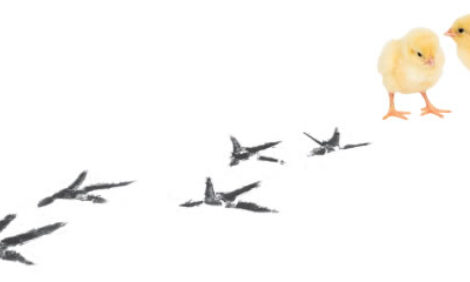



Suppliers Help Raise Efficiency to Cut Production Costs in Asia
The leading exhibitors at VIV Asia's special show sector, Eggs!, agree that the best way to help their customers through tough times is to help them improve efficiency, writes Jackie Linden, editor of ThePoultrySite.Interviews with some of the leading exhibitors in the special show sector, Eggs!, at VIV Asia in Bangkok last month highlighted how each sector and company aims to help producers fight rising costs by improving their efficiency. This approach was unanimous among those questioned.
By March this year, feed prices had eased, as Mr McCawley of Big Dutchman pointed out, saying, "Fortunately, feed prices have improved and this is having a very positive impact."
P. Degraeve of Petersime explained that the high feed costs last year hit his customers especially hard as they were unable to pass on the added costs. "The dramatic increase in feed cost in 2008 – which has now been partially reversed – had a very direct impact on the hatchery business. The increase in cost of hatching eggs was not followed by a higher selling price of day-old chicks," he explained.
"As a designer/manufacturer of incubators, we invest substantial amounts of development resources in incubation technology that optimises the quality of the day-old chick. Layer hatched in optimal conditions will achieve the maximum genetic potential during their productive life. The rising energy cost is another issue that directly impacts the profitability of hatcheries. In 2008, we launched Eco-Drive, a system that reduces the electricity consumption of the incubator by up to 50 per cent during a substantial part of the 21-say chicken incubation cycle," said Mr Degraeve.
Big Dutchman is also targeting improved energy use in the design of its equipment. "With regard to energy prices, the best way to combat this is to look for more energy-efficient equipment. At Big Dutchman, we have been working on the development of energy-saving equipment for along time now and will, of course, continue to do so in the future to ensure the egg itself remains a competitively priced basic food. Among other products, we promote energy-saving climate controllers and fans as they are a significant source of power use on the farm," explained Mr B. McCawley.
Dr R. Preisinger from Lohmann Tierzucht highlighted the need for the various sectors to work together to raise efficiency. "Genetic selection for better feed efficiency will play an even more important role in the future. Combined actions from both the genetic and nutrition sectors are required to reduce production costs," he said.
Helping clients to improving their efficiency has worked successfully for Intervet/Schering Plough Animal Health in Asia. Ruud Aerdts explained, "Higher feed and energy costs have encouraged poultry producers to improve the efficiency of their poultry management programmes. Improving general flock health, specifically focussing on intestinal diseases, such as coccidiosis and necrotic enteritis, has helped poultry producers to improve the efficiency of their operations. We have worked closely with leading poultry producers in the region to improve their performance with effective use of some of our products."
One interviewee highlighted how rising costs have accelerated the rate of consolidation in the egg industry, which has contributed to increased efficiency through economies of scale. "In the egg grading business, consolidation is a general trend. Big companies are getting bigger and more professional," said Paul Buisman of Moba. "In these growth plans, gaining efficiency is an obvious trigger. Most likely, the impact of rising production costs even speed up the scale enlargement. This means, in fact, the biggest countermeasure is gaining of efficiency in the process."
Representing the feed sector, Dr D. Joardar of Novus International warned of some of the implications of simple cost-cutting measures without regard for efficiency. He explained, "To keep feed cost down, often diets are formulated with lower energy specifications and alternative feed ingredients are used. Flock placements are delayed and older flocks were extended or moulted."
But Dr Joardar offered a suggestion to help local egg industries. "If the industry suffers with lower egg prices, local egg bodies and government initiatives should be launched to promote egg consumption," he urged.
April 2009








